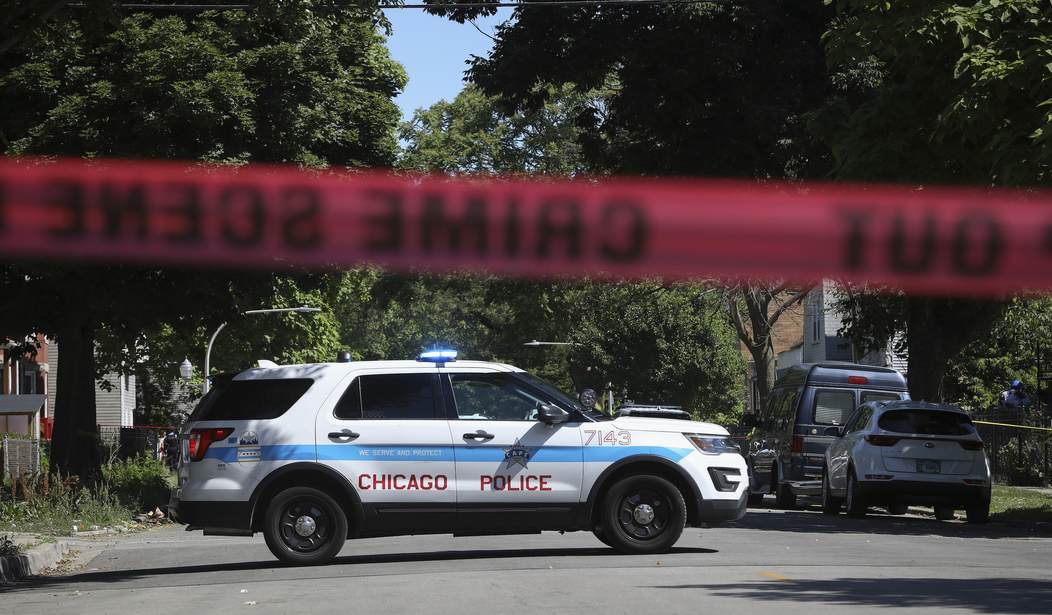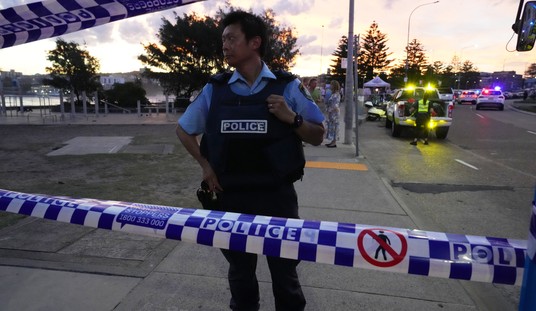A little more than a year ago, Illinois scrapped its system of cash bail as part of its SAFE-T criminal justice reforms. While judges still have the ability to hold suspects behind bars until trial based on a perceived danger to the community or the seriousness of their offense, the number of individuals arrested for felony crimes in Chicago who are already on pre-trial release has grown exponentially, according to the reporters at CWB Chicago.
CWB Chicago's managing partner Tim Hecke did a deep dive into court records and found that last July and August, about 8.5% of arrestees were out on bail. In July and August of this year, however, the number of felony arrestees on pre-trial release had grown to 18%, almost one-in-five of every felony arrest in the city. The revolving door of justice is spinning faster than ever, and Hecke believes city officials are painting a false picture of how well these "reforms" are working.
In the days ahead, public officials will be doing a lot of talking about Illinois’ first year without cash bail. Some of them from Cook County will surely brag that 88% of all defendants have shown up for court as required.
That’s the number published in the court’s latest dashboard: 88% have “not been issued a warrant for a failure to appear while on pretrial release,” the dashboard states, claiming that the number means “88% [are] Compliant with Scheduled Court Dates”.
By comparison, when cash bail ended last year, the felony compliance rate was just under 80%. So, on the surface, it appears that compliance is higher without cash bail.
However, the numbers are not apples-to-apples.
Under the current system, judges often must notify defendants who miss court dates by mail before a warrant can be issued.
As a result, the number of people who fail to appear is substantially higher than the 88% that end up in warrant status. But because—like these people—they got a postcard instead of a warrant, the chief judge considers them “compliant with scheduled court dates,” even though they were not.
Several months ago, we asked the chief judge’s office if they would consider changing the label from “compliant with scheduled court dates” to “not in warrant status.” The office did not respond, and the label has remained the same.
Supporters of the changes to the law say cash bail unfairly punished defendants by keeping them behind bars unless they could afford to post bond, while the new system is more equitable. Some defenders, like Cook County State's Attorney Kim Foxx, also claim that opponents of the change are driven by racism.
Foxx said critics “lied about what was happening with the law” leading up to its rollout by describing it as an unruly mess when policymakers had thoughtfully prepared for the change and her office had been studying and preparing for it since 2017. Foxx said “those in positions of power and journalism” failed to call out “racist propaganda” for what it was.
“There’s policy disagreement, and then there is what we saw in relation to this, this legislation, and what we saw wasn’t policy disagreements” Foxx said. “There was so much information, research, data, evidence, proof. But we were stuck on fake narratives about what was going to happen. … I will acknowledge my … bitterness about that. My bitterness about it, because what the stories that were being written were ‘Kim Foxx’ — not this collaboration, not the work that was done — ‘Kim Foxx’s controversial push on bail.’”
The jury’s still out on aspects of the Pretrial Fairness Act, with researchers saying they need more information on aspects such as rates of recidivism, fiscal impacts, and if and when courts are modifying conditions of release. But backers say they’re proud the law has largely met their aspirations of ensuring alleged offenders aren’t jailed because they can’t afford to pay bail, but because they pose a flight or public safety risk.
Asked whether a year in, the law needs any changes including adding offenses to the list of crimes eligible for detention, Foxx said “it’s too soon.”
Based on Hecke's reporting, I don't think it's too soon to say that Chicago has a growing problem with repeat offenders, and the demise of cash bail appears to be playing a major role with the recidivism rate. It's not the only issue, however. The state's "good time" credit system is also allowing some violent offenders who are held in custody while they await trial to quickly be released from custody even after they're sentenced to lengthy prison terms.
That was the case with Roderrick Sims; an eight-time felon on probation for robbery when he was arrested with a gun on a Red Line train in Chicago in June, 2022. Sims pleaded guilty to felon-in-possession and was sentenced to seven years in prison, but was released the very same day he was taken to Statesville Correctional Center
The same lawmakers patting themselves on the back for putting alleged offenders back on the street have also made it harder for people to protect themselves from violent criminals. Next week a federal judge in East St. Louis will hear arguments about the constitutionality of the state's Protect Illinois Communities Act and its ban on so-called assault weapons and large capacity magazines. Attorney General Kwame Raoul also continues to defend the state's ban on concealed carry on public transportation after another federal judge sided with the plaintiffs in an as-applied challenge to the "gun-free zones" on buses and trains. Despite violent attacks on Chicago Transit Authority property happening on an almost daily basis, Raoul and other anti-gunners in Springfield are pulling out all the stops to prevent lawful gun owners from protecting themselves from the repeat offenders like Sims they keep returning to the streets.









